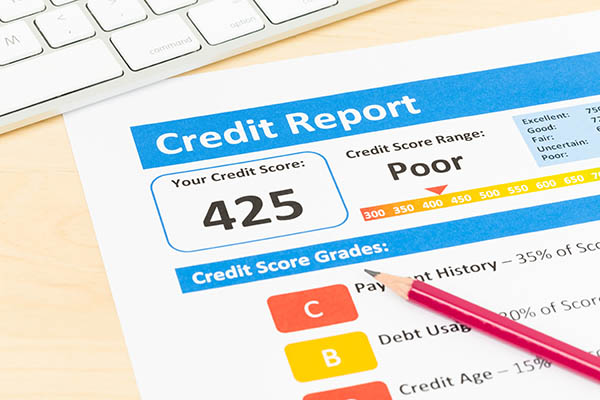Loans for Bad Credit
If you’re in need of money to cover an emergency expense but have a history of bad credit, you might feel nervous when thinking about searching for a loan.
At Little Loans, we understand that while you may have had problems with credit in the past, your financial situation could have improved since then. If you’re confident you could make monthly repayments comfortably without this affecting your essential outgoings, such as your rent or mortgage, utilities, and food, Little Loans could help you search for a bad credit loan.
It’s always a good idea to do your research thoroughly when considering any credit product, and you may well have some questions about applying when you have bad credit history or no credit history at all. We’ve put together some information that you might find helpful.

Who is Little Loans?
Before we get started on our in-depth guide to bad credit loans, we’d like to take this opportunity to introduce ourselves.
Little Loans is a credit broker, and we’re proud to work with a large panel of trusted lenders, all of whom are authorised and regulated by the Financial Conduct Authority (FCA).
The lenders on our panel are committed to responsible lending and, in-line with FCA guidelines, will carry out a creditworthiness assessment on anybody who applies for credit. It’s important to remember that these checks are in place to protect you. The lender has a duty of care to make sure that you can comfortably afford to make your monthly repayments.
It’s free to use Little Loans to search for a loan, and all quotes are no obligation.
Is it possible to be approved for a loan with bad credit?

While a poor credit history can make it difficult to be accepted for credit by a mainstream lender, such as a high street bank, there are providers that specialise in lending to people who have less-than-perfect credit history.
Bad credit lenders understand that having had credit problems in the past doesn’t necessarily mean you cannot afford to comfortably manage loan repayments in the present. Little Loans is proud to work with several lenders of bad credit loans.
However, if you are accepted for a bad credit loan, you could be offered a more manageable amount at a higher rate of interest than a standard loan.
What are some types of bad credit loan?
- Short-term bad credit loans
A short-term bad credit loan will typically come with a range of repayment terms to choose from, depending on the amount of money you apply to borrow. - Payday loans
You may be able to get a bad credit payday loan, although if you’re hoping to spread the cost of your repayments, this type of borrowing might not be suitable. As the name suggests, a payday loan must typically be repaid within a month. - Guarantor loans
This is when somebody else, usually a close friend or family member, agrees to act as your guarantor. If you find yourself in a position where you’re unable to make your monthly repayments, your guarantor will be responsible for stepping in and covering the cost. While a guarantor loan could provide an extra layer of security for both you and the lender, you should never apply for credit unless you’re confident that you’re able to make your repayments on time each month. - Secured loans
A secured loan is when you borrow money and secure it against an asset, such as your car or house. This is known as collateral, and if you default on your repayments, the lender can seize the asset to recoup their losses.
Please note that Little Loans does not work with any lenders of payday, guarantor or secured loans. The trusted lenders on our panel offer short-term, no-guarantor, unsecured loans.
It’s important to be aware that all types of bad credit loan could come with a higher rate of interest.
Who are bad credit loans suitable for?
Bad credit loans could be an option for people who have a poor or bad credit rating. This type of loan is usually for a smaller amount of money, and for people who need funds in the short term to cover an unexpected bill or an emergency.
Can I get a loan with no credit history?
Having no credit history is not to be confused with having bad credit history; they are different, although both could affect your chances of approval when applying for credit.
Having little or no credit history is often referred to as having a ‘thin’ credit file and could occur if you’ve never borrowed money or paid bills before.
A thin credit file could make it difficult for lenders to judge how much of a risk it is to lend you the money you’ve applied for. Because of this, it might be tricky to find a lender willing to consider your application.
A number of lenders on the Little Loans panel are willing to consider applications from people with a thin credit file. As is the case with a bad credit loan, a no credit history loan could come with a higher interest rate.

Am I eligible to apply for a bad credit loan?
Every lender is different, but in order to apply for a bad credit loan, you generally must:
- Be over the age of 18;
- Be a UK resident;
- Have a UK bank account with a valid debit card; and
- Have a regular source of income paid directly into your bank account.
You’re welcome to search for a loan with Little Loans if you meet the above criteria.
Each time you apply for a loan directly with a lender, they will conduct a creditworthiness assessment, which could include a hard search. Multiple hard searches in a short space of time will have a negative impact on your credit score.
Our free Eligibility Checker can give you an idea of how likely you are to be considered for a loan, without affecting your credit score. If you decide to make a full application, your lender will conduct a hard credit search as part of the application process.
How much money could I get with a bad credit loan?
Little Loans could help you search for a suitable bad credit loan between £100 and £10,000; however, the amount of money you’re approved to borrow with a bad credit loan will depend on your financial circumstances.
You will need to make sure that you can afford the monthly repayments for the amount you apply to borrow.
What are the repayment terms on a bad credit loan?
The repayment terms available to you will depend on the amount of money you apply to borrow.
We’ve put together a table to show you the various available repayment terms, based on different loan amounts.
|
Loan Amount |
Repayment Terms |
|
£100 to £950 |
3, 6, or 12 months |
|
£1,000 |
3, 6, 12, 18, 24, or 36 months |
|
£1,050 to £2,000 |
6, 12, 18, 24, or 36 months |
|
£2,050 to £2,500 |
12, 18, 24, or 36 months |
|
£2,550 to £7,500 |
12, 18, 24, 36, 48, or 60 months |
|
£7,550 to £10,000 |
18, 24, 36, 48, or 60 months |
How much will a bad credit loan cost?
The Annual Percentage Rate (APR) reflects the yearly cost of borrowing and includes interest and any standard fees. Additional fees, such as late or missed repayment fees, will not be included in the APR. You will be able to find out more about any fees you could be charged in your terms and conditions.
When you apply for a loan, you might see the Representative Example advertised. This means that at least 51% of successful applicants will be offered the advertised rate, or better.
The interest rate you’re personally offered will be determined by your individual circumstances, including your credit score; income; how much money you apply to borrow; and the loan term. Interest will be included in your monthly repayments.
How quickly can I receive the money?
If your loan application is successful, the money could be sent to your bank on the same day it is approved, although this will depend on your lender. Please bear in mind that the time it takes for the money to appear as available in your account will depend on your bank’s policies and procedures.
What can I use a bad credit loan for?
Generally, people apply for a bad credit loan to help them bridge a financial gap in the event of an emergency; for example, to repair a broken boiler or cover the cost of a vet’s bill.
A loan is a serious financial commitment, and if approved, you should use the money responsibly. You should only ever borrow the amount of money that you need, and you must make sure that you can afford to make your repayments on time each month without it affecting any other financial commitments, such as household bills, and rent or mortgage payments.

Will having a bad credit loan affect my credit score?
Any form of borrowing will affect your credit score. Whether this is a positive or a negative effect depends on how you manage your credit account(s).
Many things can affect your credit score, but how you manage your borrowing has a big impact. If you make your repayments on time each month and repay the full amount by the final due date, your credit score could improve, although you’ll also need to manage any other credit accounts in the same responsible way. If you make a repayment late, or miss one altogether, your credit score will suffer.

What causes bad credit history?
Bad credit history can consist of a number of things, including:
- Poor management of past credit commitments, including late or missed repayments.
- Being reckless with your credit applications. Multiple hard credit checks on your credit file will damage your score.
- Being financially associated with somebody who has a history of poor credit. For example, sharing a joint account with a spouse who has a bad credit score could negatively affect you, even if you have a good credit score to begin with.
- Declaring yourself bankrupt.
- Being subject to a county court judgement (CCJ) or an Individual Voluntary Arrangement (IVA).
Sometimes, bad credit can be caused by a factor outside of our control, such as being the victim of fraud.
Ways to improve your credit score
While this isn’t a guarantee, as each application will be subject to a creditworthiness assessment, those with good credit history might find that they have a broader range of borrowing options to consider when searching for credit. A good credit score could also unlock more desirable interest rates, which will reduce the overall cost of borrowing.
There are several things you can do to take your first steps towards an improved credit score. When working towards a healthier credit position, it’s important to be patient and consistent.
- Register to vote. Being on the electoral roll is a relatively quick and straightforward way to boost your credit score.
- Check your credit report for errors and report any outdated or inaccurate information to your credit reference agency (CRA).
- Pay your bills and any current credit commitments on time each month. A late or missed repayment will have a negative impact on your credit score. Making repayments on time will demonstrate that you can reliably manage your borrowing, which in turn could have a positive effect on your credit score.
A credit builder credit card may be a good option. They usually have modest initial credit limits to help you keep spending under control. When you use these cards responsibly, the information is reported to credit reference agencies, which can gradually improve your credit score.
- This point won’t be applicable to everyone, but if you have a credit card, you should be aware that using your credit card to withdraw money from a cash machine, going over your credit limit, and having high credit utilisation could all lead to a decline in your credit score.
What will happen if I can no longer make my repayments?
If you have taken out a loan and are worried that you are unable to make your next repayment, the best thing to do is to contact your lender at the earliest opportunity. They will want to help you manage your repayments and get your account back on track.
If you feel that you are having difficulties managing your finances, you can find free, independent advice and support at Citizens Advice, National Debtline or at MoneyHelper.
Not sure where to start? Try StepChange’s Money Health Check to find out if debt advice could help you.
Representative example: Amount of credit: £1000 for 12 months at £123.40 per month. Total amount repayable of £1,480.77 Interest: £480.77. Interest rate: 79.5% pa (fixed). 79.5% APR Representative. We’re a fully regulated and authorised credit broker and not a lender

